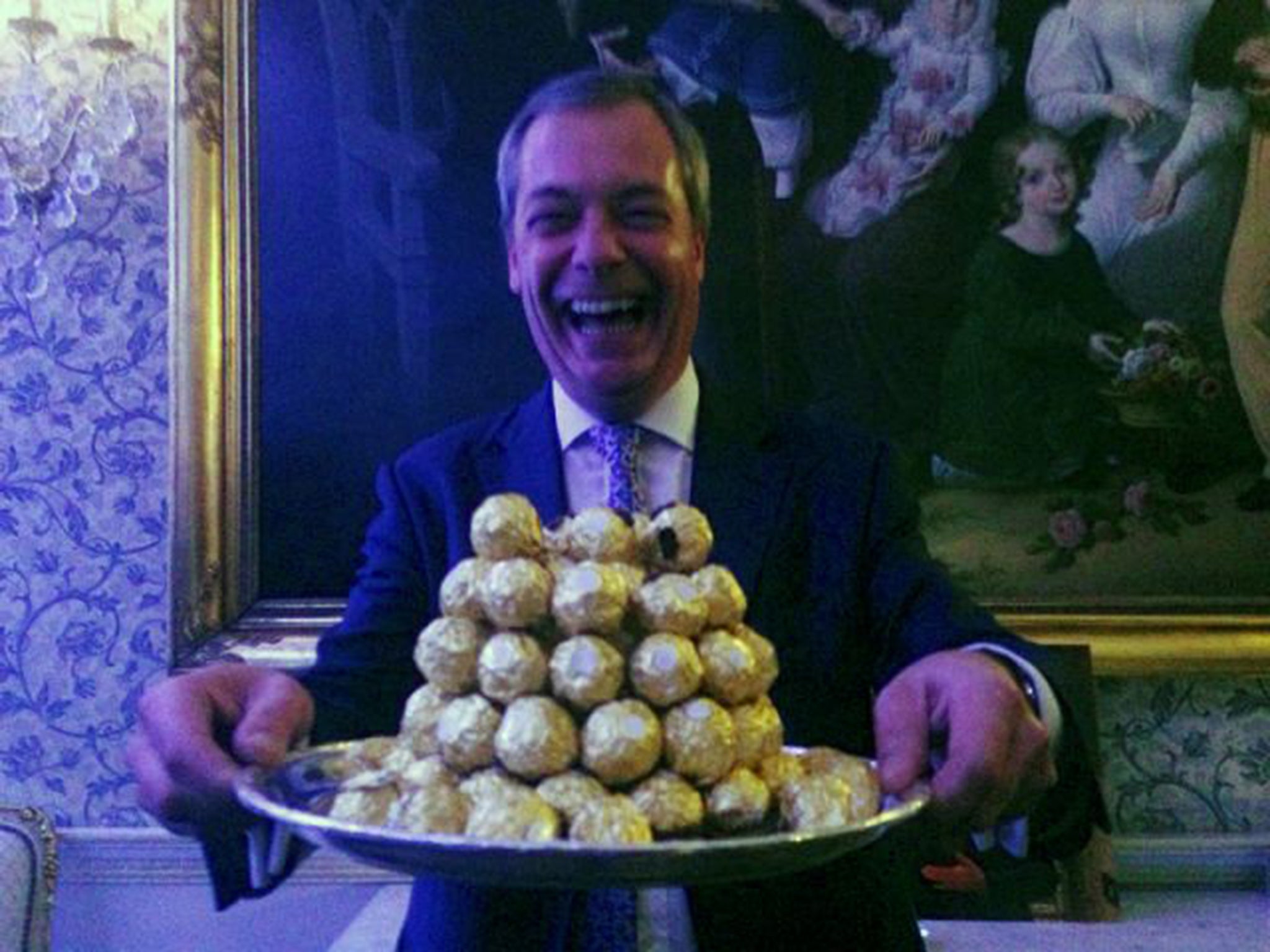Don't compare Donald Trump's victory to Brexit – only one still has positive potential
Britain can still make a fair and just success of Brexit, something the clear majority of voters want. America, unfortunately, doesn’t have the opportunity to make a fair and just success of a Trump presidency, something the majority of voters didn’t want


Your support helps us to tell the story
From reproductive rights to climate change to Big Tech, The Independent is on the ground when the story is developing. Whether it's investigating the financials of Elon Musk's pro-Trump PAC or producing our latest documentary, 'The A Word', which shines a light on the American women fighting for reproductive rights, we know how important it is to parse out the facts from the messaging.
At such a critical moment in US history, we need reporters on the ground. Your donation allows us to keep sending journalists to speak to both sides of the story.
The Independent is trusted by Americans across the entire political spectrum. And unlike many other quality news outlets, we choose not to lock Americans out of our reporting and analysis with paywalls. We believe quality journalism should be available to everyone, paid for by those who can afford it.
Your support makes all the difference.Populism put Donald Trump in the White House, and populism took Britain out of the European Union. At least, that’s the line the media both sides of the Atlantic has embraced in the wake of Trump’s surprise victory. I see the temptation to draw parallels, as in many ways both Trump and Brexit have legitimised xenophobia and were won by politicians stoking white resentment. But this is a lazy and pedestrian analysis that legitimises Trump’s bigotry, paints large swathes of the British public with an unfair brush, and ignores some very obvious differences between a question and a candidate.
Many people who voted for Brexit did so because they’re racist. I don’t want to minimise this. But the EU referendum asked one question only – stay or go. As such, people could arrive at their decision via a myriad of avenues and reasoning.
I’m a metropolitan, university-educated, gay millennial. By every measure, I should be a staunch Remainer. While as an American I didn’t have a vote, I ultimately did reluctantly support Remain. The lack of a plan, which the government still hasn’t produced, convinced me – ever the pragmatist – not to back an unknown Brexit: you shouldn’t leave anywhere without knowing how to get to where you’re going.
But even I was torn, seeing the opportunities Brexit brought to escape European corporatism (the likes of TTIP, which could open the NHS up to American-style privatisation, for example) and return powers I feel best lie in Parliament. Leftists like Giles Fraser presented powerful, socialist cases for leaving the EU, and many young Brits were listening, even in places like Walthamstow and Islington.
While the country did vote to leave, Brexit hasn’t happened yet. The vote was on the destination, not the road to take. Theresa May hopes to trigger Article 50 in March, but the Supreme Court could put a wrench in that by giving Parliament a vote. If so, that gives the Labour Party (if it can get its act together before then), the SNP, and Tories like Anna Soubry a chance to make Brexit a fairer, more progressive success. While some on the right, including Liam Fox, have suggested using EU nationals in the UK as “bargaining chips,” the consensus seems to be that no one will be deported.
Donald Trump, on the other hand, has plugged America’s destination into the satnav and found the quickest available route to fascism. Unlike Brexit, where you could have reasonable motives to vote Leave that don’t involve hating Muslims or immigrants, people voted for Trump specifically because of his rhetoric on Muslims and immigrants – mass deportation, suspicion, walls with Mexico that he’d “make them pay for” and a register for Muslims in the States which might use Japanese internment camps from World War Two as a “precedent” in particular.
It wasn’t “economic anxiety” that drove Trump to victory. The majority of Americans making less than $50,000 a year voted for Hillary Clinton. College-educated whites, whose prospects are relatively secure, voted for Trump. Meanwhile, the overwhelming majority of black and Latino Americans – who disproportionately live in poverty – went for Clinton. If Trump so appealed to the economic angst of workaday America, he would have bridged the racial divide. That he didn’t speaks volumes about what his message really was.
Even saying “white working class” shows this election was not about the economy so much as it was about race, because it ignores millions of working class people of colour – including the same Mexicans and Chinese people Trump claims stole white people’s jobs. His promise of bringing back jobs was directed at white people at the expense of people of colour. That’s racism.
This is why there was no credible voice in the press making a “left-wing case for Donald Trump”; you can’t make a left-wing case for a xenophobe. While the themes and rhetoric of the official Leave campaign and Farage’s Leave.EU of “taking our country back” echo “Make America great again” as racist dog whistles, they weren’t the only voices being heard.
You could answer “yes” to the question of leaving the EU without co-signing on hate, something you couldn’t do with a vote for Trump. Unlike with Brexit, which may or may not happen at some unspecified date in the future, Trump happens on 20 January. And unlike Brexit, which could occur in any number of ways, there’s only one way Donald Trump happens, and it isn’t progressive.
This wasn’t a referendum, but an election, and his policies were made very clear. He plans to deport two to three million people in his first 100 days. He wants a Muslim registry. He plans to eliminate head-of-household status for single parents, costing millions to working families. Brexit is still a question to be answered. Donald Trump is an answer to be feared.
Britain can still make a fair and just success of Brexit, something the clear majority of voters want. America, unfortunately, doesn’t have the opportunity to make a fair and just success of a Trump presidency, something the majority of voters didn’t want.
We don’t get to decide which road to take, because the President-elect has already put us on course for racial divide and economic conservatism. So let’s stop with the Trump/Brexit comparisons now, before we create a self-fulfilling prophecy that turns a progressive opportunity into oppressive reality.
Skylar Baker-Jordan is an American journalist and essayist. He is based in Chicago, but hopes to move to London next year
Join our commenting forum
Join thought-provoking conversations, follow other Independent readers and see their replies
Comments